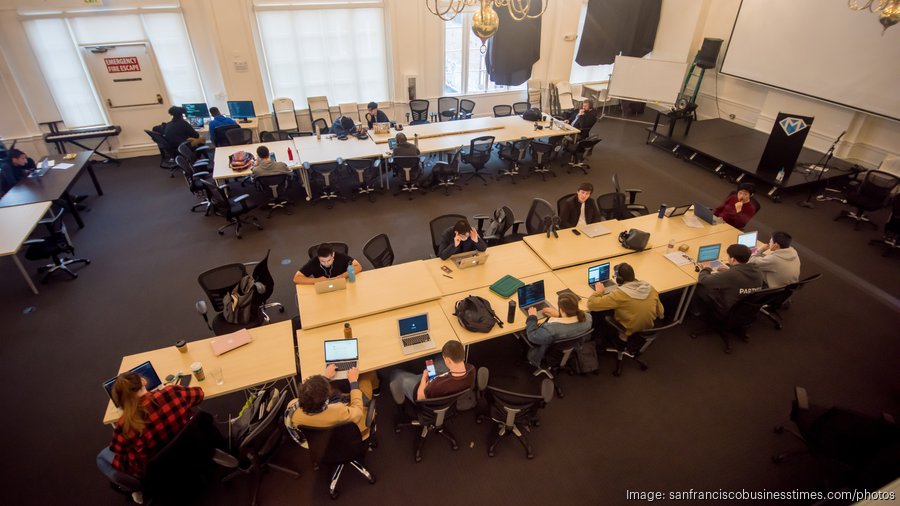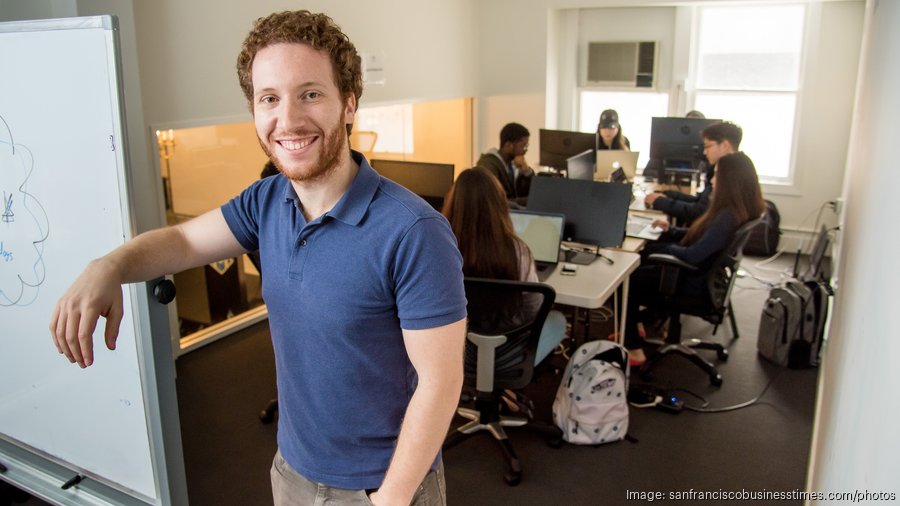By all accounts, Marianna Campbell has always been primed to be an engineer. In Middle School, she enrolled in computer science summer camps and after-school coding programs. She built an app for an organic skincare company that she started in high school.
With a full scholarship to Wayne State University to study biomedical engineering, she saw her future falling into place. But just months after accepting the offer from Wayne State, she opted instead to attend an experimental startup college in San Francisco. Make School offers a two-year computer science program that emphasizes practical computer science skills — such as building apps — instead of theoretical concepts. It’s a combination of a short-term coding bootcamp and a traditional four-year university. The school’s goal is simple: get students hired as software engineers.
“A full ride is challenging to to say no to, but I always wanted to learn this craft and to grow in it,” Campbell said. “My parents knew that I was passionate about this and so they said yes.”
Campbell will be part of the first class of Make School students to graduate with an accredited Bachelor’s degree in Applied Computer Science. The school was accredited by the Western Association of Schools and Colleges, the same third-party body that accredits UC Berkeley and Stanford, Make School said Tuesday.
“It’s a historic moment in the sense that it’s a signal of accreditor open-mindedness to new models of higher education,” said Make School co-founder Jeremy Rossmann. “The fact that a third party has looked over this and has held us to this high standard, I think will definitely instill trust in people.”
Under a partnership that was the crux of Make School’s accreditation bid, professors from Dominican University of California in San Rafael teach humanities and Liberal Arts classes at Make School. At the same time, Make School professors go to Dominican University to teach computer science courses, making it possible for Dominican to offer an applied computer science minor for the first time.
“Our students are interested in learning the basics of coding, regardless of major,” said Mary Marcy, president of Dominican University. “They recognize that technology has moved from being a specialist area to something that’s ubiquitous in every business.”
With accreditation, Make School is the first ever venture-backed startup to earn approval to offer accredited Bachelor’s degrees. While anyone can start a college or university, only institutions that are accredited have invited a third-party to audit their curriculum and practices. Basically, accreditation ensures that an institution is legit.
“If you’re an 18 or 20 year old, and you tell your parents that you want to drop out of college and go to the weird Make School thing, they freak out. And now, the conversations are different because it’s an accredited Bachelor’s of computer science,” said Alan Davis, a programming instructor at Make School.

Students don’t pay tuition, but it isn’t free.
The main difference between Make School and traditional colleges is tuition. Students don’t have to any pay tuition up front, but are required to pay back 20 percent of their wages for five years after they graduate and get a job.
Students only have to pay if they make over $60,000. It’s a model that incentivizes Make School to teach desirable skills, instead of providing a degree that doesn’t get anyone hired, Rossmann said. It also may be preferable to traditional student loans, which most students have to pay back regardless of employment.
“We don’t make any money unless students get employed,” Rossmann added. “That is the foundational DNA of the program.”
The tuition model was especially attractive to Campbell.
“I’m glad to pay it because I feel like I’m getting so much in these two years that I’m prepared to be a software engineer wherever I choose to go,” she said.
Reducing the amount of theory taught in a computer science program makes it possible to offer a two-year degree in a highly specific track, such as iOS or Android development. Each class is fast-paced at seven weeks long, and is centered around building a portfolio project where students learn about design and project management.
But in order to get accredited, Make School had to offer a slew of Liberal Arts courses, such as writing and philosophy, in addition to its signature programming classes.
“A big part of a liberal arts education sets students up to be better communicators that are critical thinkers and processors of information,” Rossmann added. “That is critical to ensuring a student's ability to be a team player.”



